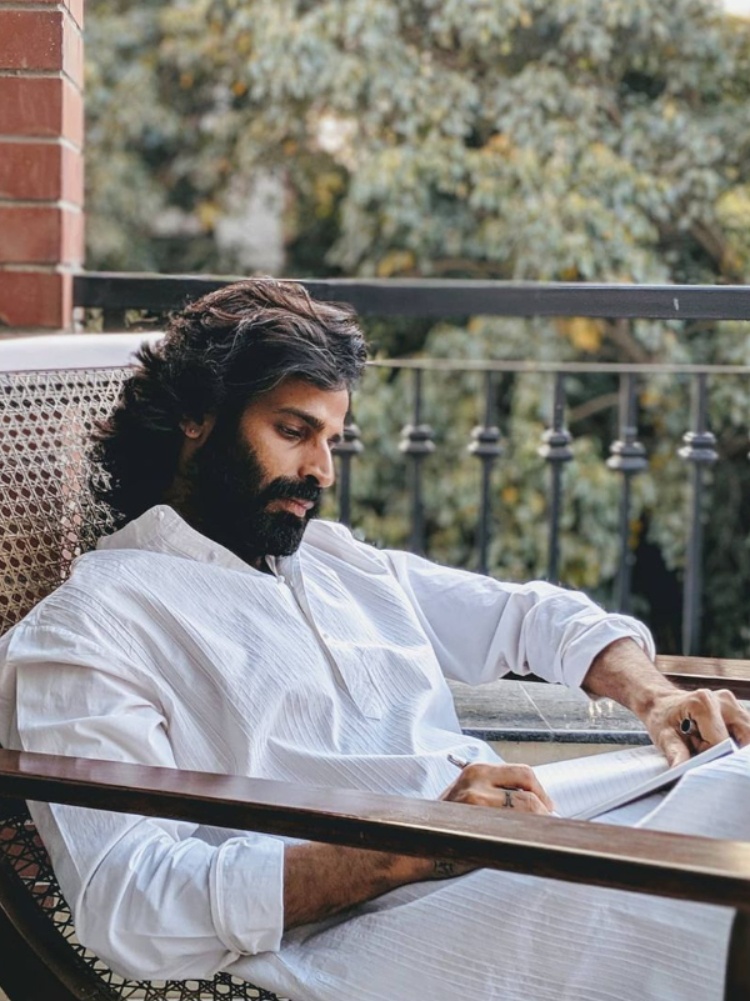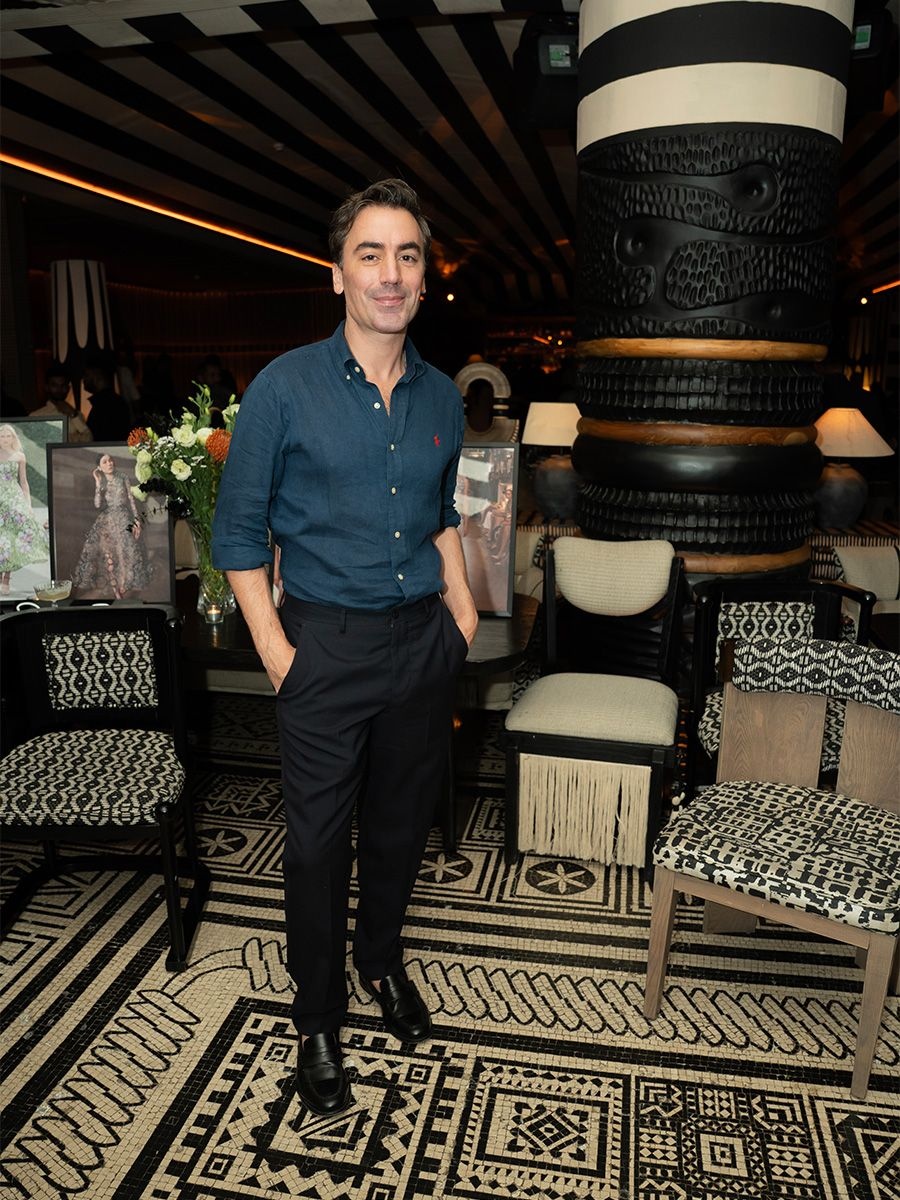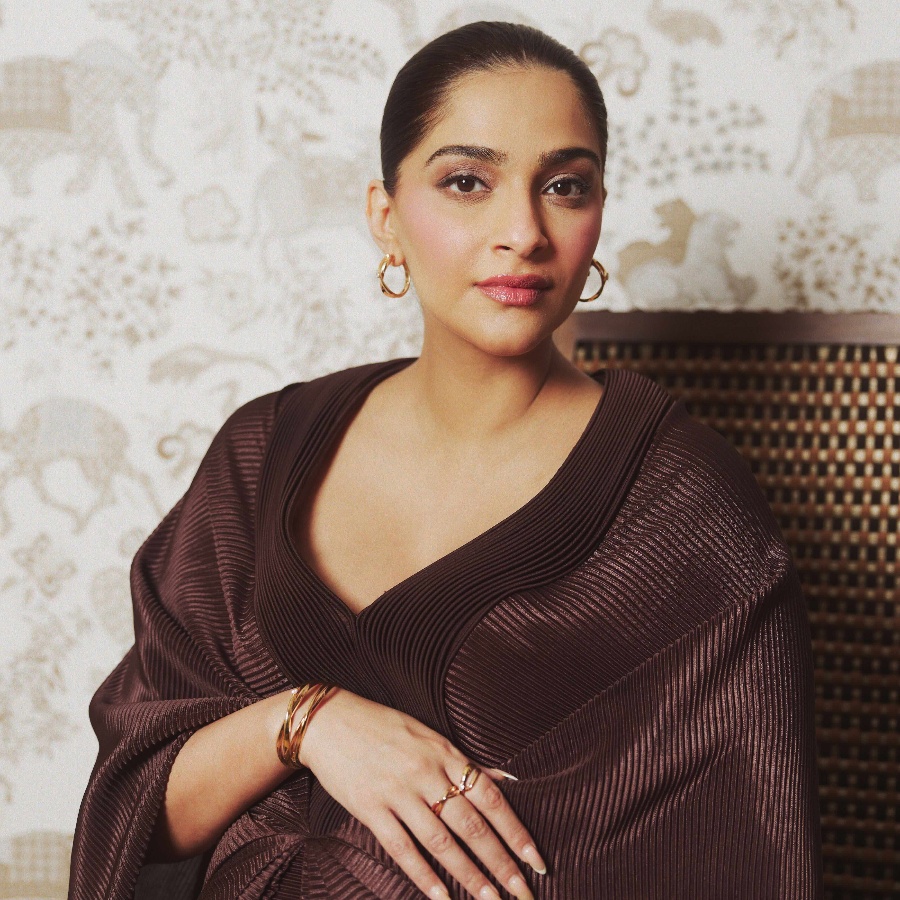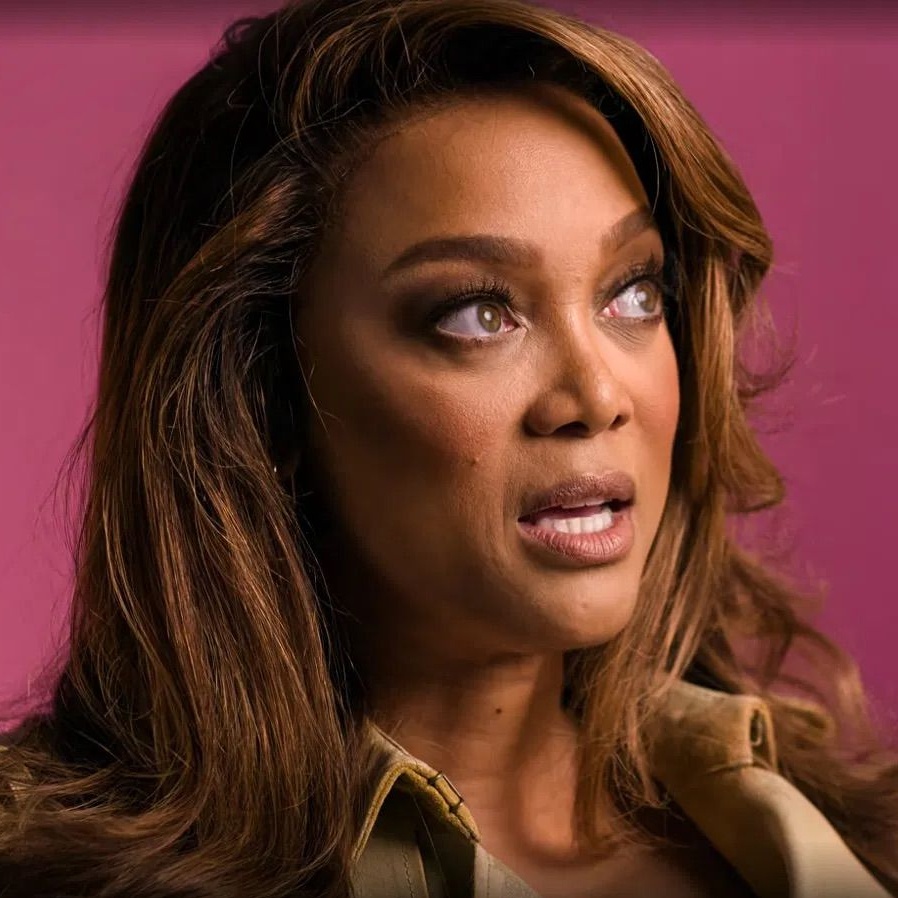Designer Pranav Kirti Misra will resist telling you the exact thought process behind his recent spring/summer 2026 show. Instead, he wants you to tell him what you thought of it. “I’m always hungry for people in fashion to talk more about fashion. About what went well, what went wrong. It shows that you’re passionate about your art,” he says over a Sunday morning Zoom call from his hotel room in Mumbai.
We’re chatting the day after his show, which, like everything Misra does with his label Huemn, was full of contrasts—beauty and ugliness, tailoring with streetwear, floral embroideries and ghostly monochrome prints. The lineup included tailored wool blazers, slouchy denim trousers, sheath-like LBDs, oversized T-shirts with the now-signature motif of a horse’s head, and sari-adjacent drapes. There was also a limited-edition Tata Sierra X Huemn capsule collection that included a T-shirt, a cap, and a jacket; the last was modelled on the runway by the captain of the World Cup-winning Indian women’s cricket team, Harmanpreet Kaur.
This ability to take a range of disparate thoughts and put them together into one cohesive presentation reflects how Misra’s brain works. In one day he might jump from a playlist that includes heavy metal and ghazals to the poetry of Rilke and then back to Huemn and how he wants to make something that his celebrity clients can wear on the red carpet. The last thought, especially, is something he was excited to talk about.
Actors like Tamannaah Bhatia and Aditi Rao Hydari have all been spotted in his graphic T-shirts and shirts, but now he’s ready to give them elegant shift-like dresses with aari embroidery, jackets with chikankari details, and what he’s calling “the sari 2.0”. “It retains all the essential factors that make a sari—the pleats, the drape, the pallu—but we’ve made it a single piece that you can wear without a blouse,” he explains. Here he speaks to The Nod about what’s on his reading list, growing up in Lucknow, and making music for the first time.
What time did you wake up this morning?
Generally, I wake up very early, but today I woke up at 9 am because I got to bed only at 6 am, after the show!







